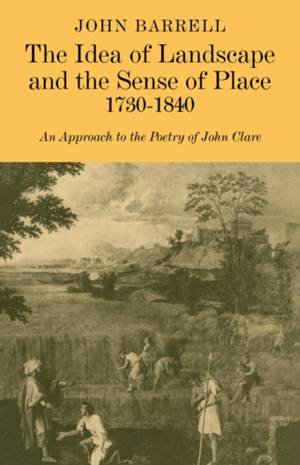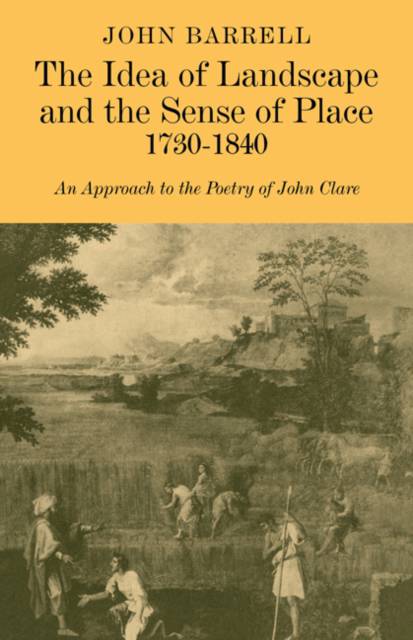
- Afhalen na 1 uur in een winkel met voorraad
- Gratis thuislevering in België vanaf € 30
- Ruim aanbod met 7 miljoen producten
- Afhalen na 1 uur in een winkel met voorraad
- Gratis thuislevering in België vanaf € 30
- Ruim aanbod met 7 miljoen producten
Zoeken
The Idea of Landscape and the Sense of Place 1730 1840
An Approach to the Poetry of John Clare
John Barrell
Paperback | Engels
€ 77,95
+ 155 punten
Omschrijving
It is generally agreed that in the early eighteenth century people began to be interested in landscape as something to have a 'taste' for; that they saw landscape through the eyes of the great painters, and that later pictures, poetry and landscape gardening all reflect that taste. Dr Barrell examines this interest, showing how the taste for landscape affected the poetry in detail. John Clare, who lived most of his life in rural Northamptonshire, whose landscape was being transformed by enclosure, is then taken as the focus of these different attitudes. Clare's truthfulness to the individual locality he wanted to describe would not permit him to use the conventional literary language of his predecessors, and he had instead to find his own language. His success in doing this removed him from mainstream English poetry. This 1972 text brings 'taste' into contact with the social and economic bases of life.
Specificaties
Betrokkenen
- Auteur(s):
- Uitgeverij:
Inhoud
- Aantal bladzijden:
- 262
- Taal:
- Engels
Eigenschappen
- Productcode (EAN):
- 9780521181327
- Verschijningsdatum:
- 17/02/2011
- Uitvoering:
- Paperback
- Formaat:
- Trade paperback (VS)
- Afmetingen:
- 140 mm x 216 mm
- Gewicht:
- 335 g

Alleen bij Standaard Boekhandel
+ 155 punten op je klantenkaart van Standaard Boekhandel
Beoordelingen
We publiceren alleen reviews die voldoen aan de voorwaarden voor reviews. Bekijk onze voorwaarden voor reviews.











